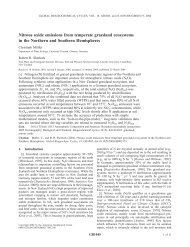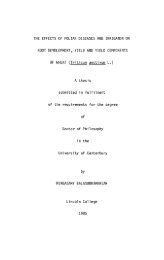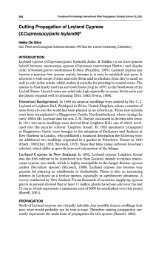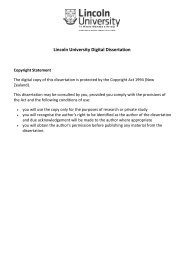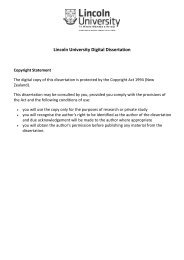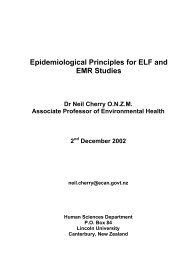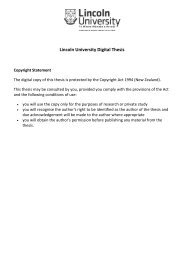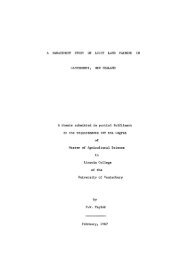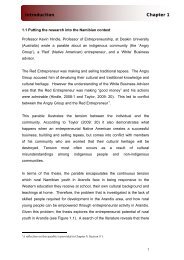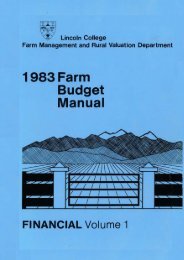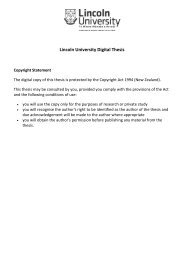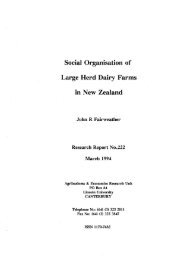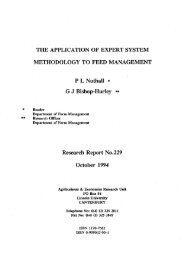Lincoln University Digital Dissertation - Lincoln University Research ...
Lincoln University Digital Dissertation - Lincoln University Research ...
Lincoln University Digital Dissertation - Lincoln University Research ...
You also want an ePaper? Increase the reach of your titles
YUMPU automatically turns print PDFs into web optimized ePapers that Google loves.
is fewer and fewer because we’re all becoming part of a generation that is sort<br />
of separate to the land… There’s still people out there who do but nowhere<br />
near the same [as] when we were young; you see youngsters nowadays…<br />
everything is almost a material sort of culture. They don’t appreciate what they<br />
have got, and realise what they have got compared to what we had before.”<br />
(Grower 1)<br />
Because taewa have traditionally had such a significant role facilitating this<br />
link to the land, they are held in high regard by Maori, as something special<br />
and unique. Growers described this unique relationship:<br />
“You know we have always been land based, rural, so it’s just natural that we<br />
have [grown taewa] and our parents and grandparents were farmers and we<br />
have carried on the same tradition. You know we are not urban so we have<br />
the same values but it’s mainly to prolong, and keep those different species<br />
[of taewa] so they are still relevant today. So you don’t loose the varieties.”<br />
(Grower 3)<br />
“It’s a special potato; it’s not like any other thing…” (Grower 7)<br />
Taewa have been nurtured by Maori for at least 200 years 3 and are<br />
considered an important link to the whenua, and thus an integral part of<br />
whakapapa. This unique relationship has lead to contemporary<br />
misrepresentations concerning whether or not the crop should be termed<br />
‘indigenous’. The growers made it clear that they valued the historical<br />
relationship between Maori and taewa over the origins of the crop. While all<br />
growers acknowledged that at least the majority of taewa cultivars came with<br />
early European whalers and sealers, they did not see this as a critical factor,<br />
rather, they focused on the relationship between Maori and taewa, portraying<br />
the origins of the crop as irrelevant. The growers describe the unique,<br />
historical relationship Maori have had with taewa, nurturing and sustaining the<br />
3 As mentioned earlier, Maori have had contact with particular taewa cultivars since the late 1700’s,<br />
although it should also be acknowledged that some Maori believe that they have grown taewa for a<br />
much longer period and that Maori are themselves responsible for the importation of certain varieties of<br />
taewa to New Zealand.<br />
35



